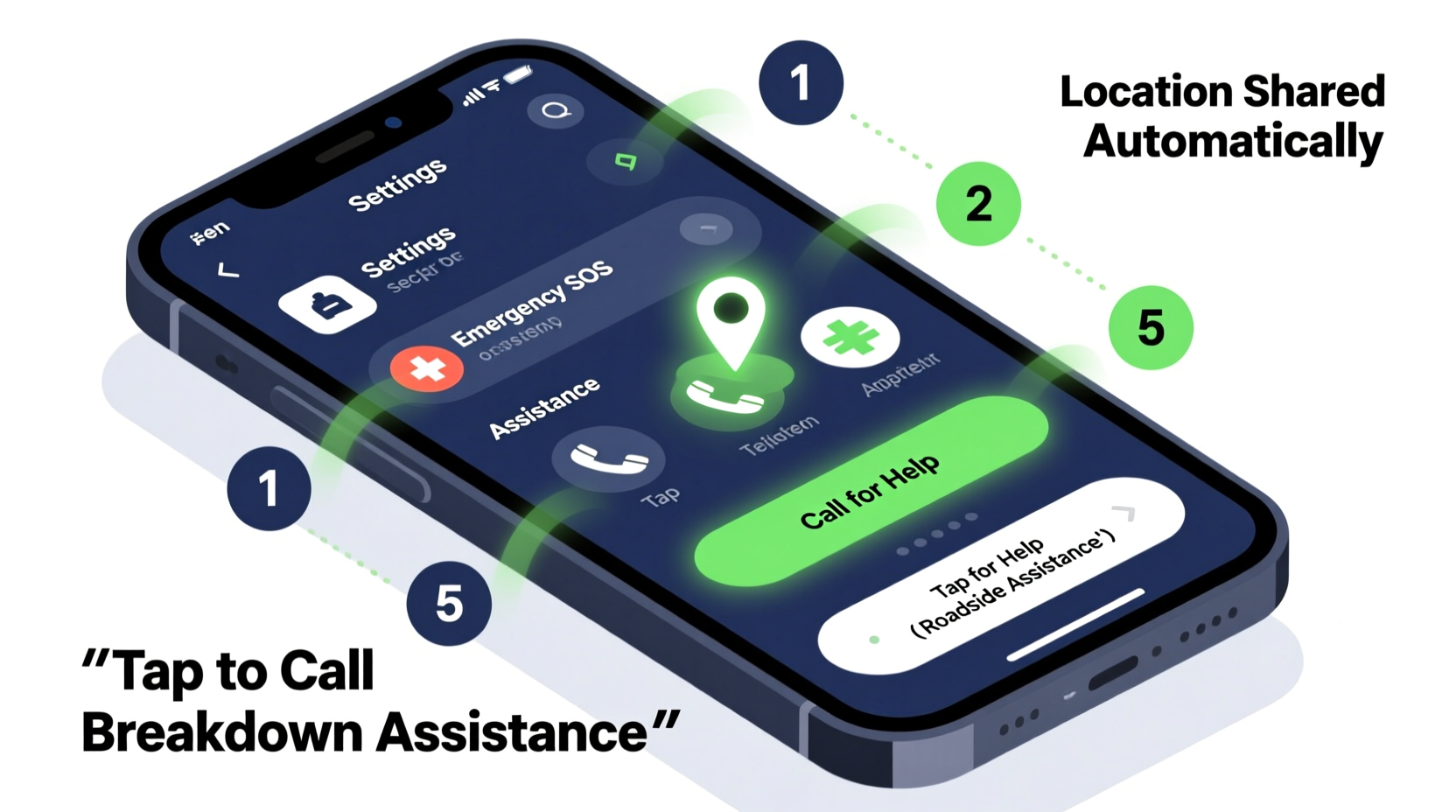When your smartphone malfunctions—whether it freezes repeatedly, won’t charge, or suddenly stops connecting to networks—it can disrupt work, communication, and daily routines. Unlike a physical injury, a phone breakdown isn’t life-threatening, but in today’s hyper-connected world, it can feel just as urgent. The good news is that help is usually within reach, especially if you know how to efficiently request assistance using the very device that’s failing. Knowing the right steps ensures you get timely support without escalating stress or causing further damage.
Assess the Severity of the Breakdown

Before making any calls, determine the nature and severity of the issue. Not every glitch requires professional intervention. Some problems are software-related and can be resolved remotely; others indicate hardware failure needing in-person service.
- Minor issues: App crashes, slow performance, intermittent Wi-Fi.
- Moderate issues: Battery drains rapidly, screen flickers, unresponsive touch.
- Severe issues: Device won’t power on, water damage, cracked screen with display failure.
If your phone still powers on and has partial functionality, use it immediately to contact support. Delaying action when symptoms first appear can turn a fixable problem into permanent damage.
Step-by-Step Guide to Requesting Assistance
Calling for help may seem straightforward, but doing so effectively under pressure requires preparation and clarity. Follow this timeline to maximize your chances of fast resolution.
- Preserve battery and connectivity: If your phone is struggling, close unused apps, enable airplane mode briefly to reset connections, then disable it to reconnect. This often stabilizes weak signals.
- Gather key information: Note your phone model, serial number (found in settings or on the original box), warranty status, and a clear description of the issue.
- Identify the correct support channel: Is your device under manufacturer warranty? Purchased through a carrier? Third-party insured? Each path leads to different support options.
- Initiate the call or chat: Use another device if possible, but if not, act while your phone still functions partially. Dial customer service, visit the brand’s website via mobile browser, or use their official app.
- Follow instructions precisely: Support agents may ask you to perform resets, run diagnostics, or prepare data backups. Cooperate fully to avoid misdiagnosis.
- Document the interaction: Save reference numbers, agent names, and estimated repair timelines. These are crucial if follow-up is needed.
Real Example: A Commuter’s Crisis
Sarah, a freelance designer, was en route to a client meeting when her iPhone froze during navigation. The screen went black despite repeated attempts to restart. With only 15% battery left, she connected to her car’s USB port to maintain charge, then used Siri to call Apple Support hands-free. She described the issue clearly: “My iPhone 14 Pro won’t wake up after a sudden shutdown, though it vibrates on button press.” The agent guided her through a forced restart (holding volume down + side button), which restored function temporarily. They scheduled a Genius Bar appointment for later that day. Because Sarah acted quickly and had her Apple ID and warranty info ready, she avoided missing her deadline.
Do’s and Don’ts When Contacting Support
| Do’s | Don’ts |
|---|---|
| Keep your device charged during the call | Don’t keep pressing buttons frantically—this can worsen hardware strain |
| Use headphones or speakerphone for clearer communication | Don’t ignore error messages—note them down for accurate reporting |
| Back up data immediately if advised | Don’t attempt DIY repairs unless authorized |
| Verify the legitimacy of the support number or website | Don’t share passwords or full credit card details over unsecured lines |
Expert Insight: What Technicians Recommend
“Most users wait too long to seek help. If your phone behaves abnormally for more than 24 hours, assume it’s not just a glitch. Early diagnosis saves both time and money.” — Marcus Lin, Senior Repair Technician at MobileFix Labs
Lin emphasizes that modern smartphones have self-diagnostics built into their operating systems. For example, Android devices offer “Device Care” tools, while iPhones provide battery health reports under Settings > Battery. Running these checks before calling support gives technicians valuable insight and reduces troubleshooting time.
Checklist: Before You Call Phone Breakdown Assistance
- ✅ Charge the device to at least 30%, if possible
- ✅ Write down symptoms in chronological order
- ✅ Locate your warranty or insurance documents
- ✅ Back up photos, contacts, and critical files to cloud storage
- ✅ Confirm you’re contacting the official support line (e.g., apple.com/support, samsung.com/us/support)
- ✅ Prepare a quiet environment for clear conversation
- ✅ Have a secondary device ready in case your phone shuts down mid-call
Frequently Asked Questions
What should I do if my phone won’t turn on at all?
First, connect it to a known-good charger for at least 15 minutes. Try a forced restart (specific button combinations vary by brand). If there’s no response, contact support immediately—especially if the device was recently exposed to moisture or impact.
Can I get remote assistance if my internet is down?
Yes, if your phone has cellular data enabled. Switch off Wi-Fi and ensure mobile data is active. Even limited connectivity allows access to web-based support portals or voice calls. As a last resort, borrow a friend’s hotspot or use a public network securely.
Is it safe to send my phone to a mail-in repair center?
Official manufacturer or certified third-party programs (like uBreakiFix or Best Buy) use insured shipping and secure data handling. Always back up and erase personal data before sending. Avoid unverified local shops that lack tracking or warranties.
Maximizing Support Success Across Brands
Different manufacturers offer varying levels of accessibility and speed when it comes to breakdown assistance. Understanding what’s available helps you choose the fastest route.
- Apple: Offers 24/7 phone support, in-store Genius Bar appointments, and instant chat via its website or Apple Support app.
- Samsung: Provides live chat, virtual agent troubleshooting, and same-day repair options at authorized centers.
- Google (Pixel): Supports direct mail-in repairs with loaner phones in some regions, plus comprehensive online diagnostics.
- Third-party brands: Often rely on regional distributors—check your purchase receipt or packaging for localized support links.
Regardless of brand, always verify URLs and phone numbers. Scammers often mimic legitimate support pages to steal credentials. Stick to official domains ending in .com or .org and look for HTTPS encryption in the address bar.
Conclusion: Act Fast, Stay Calm, Get Results
A malfunctioning phone doesn’t have to mean lost productivity or prolonged downtime. By acting swiftly, communicating clearly, and preparing the right information, you can resolve most issues efficiently—even using the affected device itself. Don’t wait until your screen goes completely dark or your battery dies for the last time. Proactive engagement with support services preserves functionality, protects your data, and often extends your device’s lifespan.









 浙公网安备
33010002000092号
浙公网安备
33010002000092号 浙B2-20120091-4
浙B2-20120091-4
Comments
No comments yet. Why don't you start the discussion?